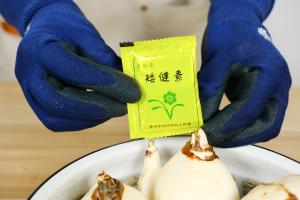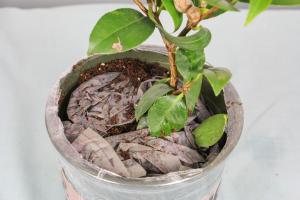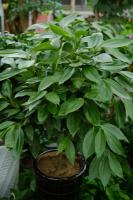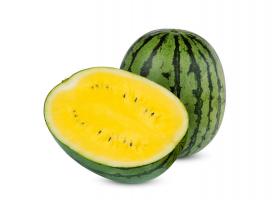Introduction
As a plant owner, it can be difficult to decide whether or not to water your plants with tap water. While it’s certainly the easiest option, many people wonder if using tap water could be harmful to their plants. In this article, we’ll explore the benefits and potential drawbacks of using tap water for plants so that you can make an informed decision.
The Benefits of Tap Water
The biggest advantage of tap water is convenience. Unless you live in an area with particularly contaminated water, you can simply turn on the faucet and have a ready supply of water for your plants. Unlike other types of water, you don’t have to worry about transporting it or storing it in a special container. Additionally, tap water is often rich in minerals and nutrients that can be beneficial to your plants.
The Drawbacks of Tap Water
While tap water is convenient, it’s not always the best choice for plant watering. One of the biggest issues with tap water is that it can contain various contaminants, such as chlorine, fluoride, and heavy metals. While these chemicals might not pose a serious risk to human health in small amounts, they can be harmful to plants over time. For example, chlorine can irritate plant roots and prevent proper nutrient absorption, while fluoride can cause leaf burn and stunted growth.
Another potential issue with tap water is that it can be “hard,” meaning it contains high levels of dissolved minerals such as calcium and magnesium. These minerals can accumulate in the soil over time and make it difficult for plants to absorb water and nutrients. This can lead to root damage and slowed growth, especially in plants that are sensitive to mineral build-up.
Alternatives to Tap Water
If you’re concerned about the quality of your tap water or the potential impact it might have on your plants, there are several alternatives you can consider. One of the most popular options is filtered water, which removes many of the contaminants found in tap water. You can either purchase a filtering pitcher or attachment for your faucet, or invest in a more extensive filtration system for your home.
Another alternative to tap water is rainwater. Collecting rainwater in a barrel or other container can provide your plants with a natural, chemical-free source of water that often contains beneficial nutrients. However, it’s worth noting that rainwater can also contain other contaminants, such as pollutants and bacteria, depending on where you live.
Conclusion
In the end, the decision to water your plants with tap water ultimately comes down to your personal preferences and circumstances. While tap water is convenient and often contains beneficial minerals, it can also be harmful to plants if it contains high levels of contaminants. If you’re worried about the quality of your tap water, consider using a filtration system or collecting rainwater instead. By taking the time to research your options and weigh the pros and cons, you can ensure that your plants stay healthy and thrive for years to come.

 how many times do yo...
how many times do yo... how many planted tre...
how many planted tre... how many pine trees ...
how many pine trees ... how many pecan trees...
how many pecan trees... how many plants comp...
how many plants comp... how many plants can ...
how many plants can ... how many plants and ...
how many plants and ... how many pepper plan...
how many pepper plan...































